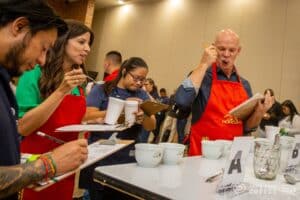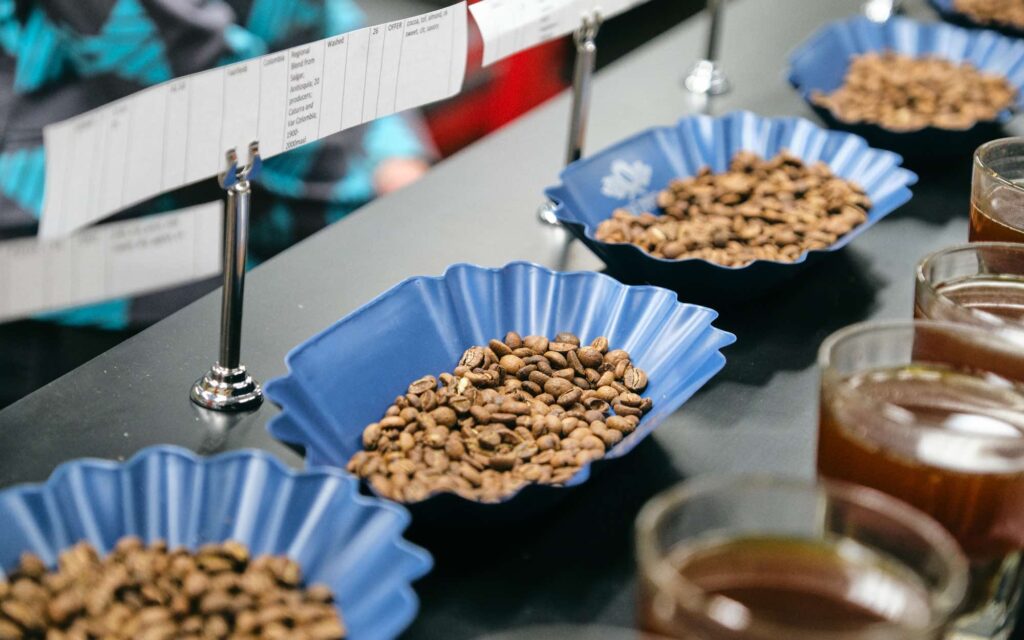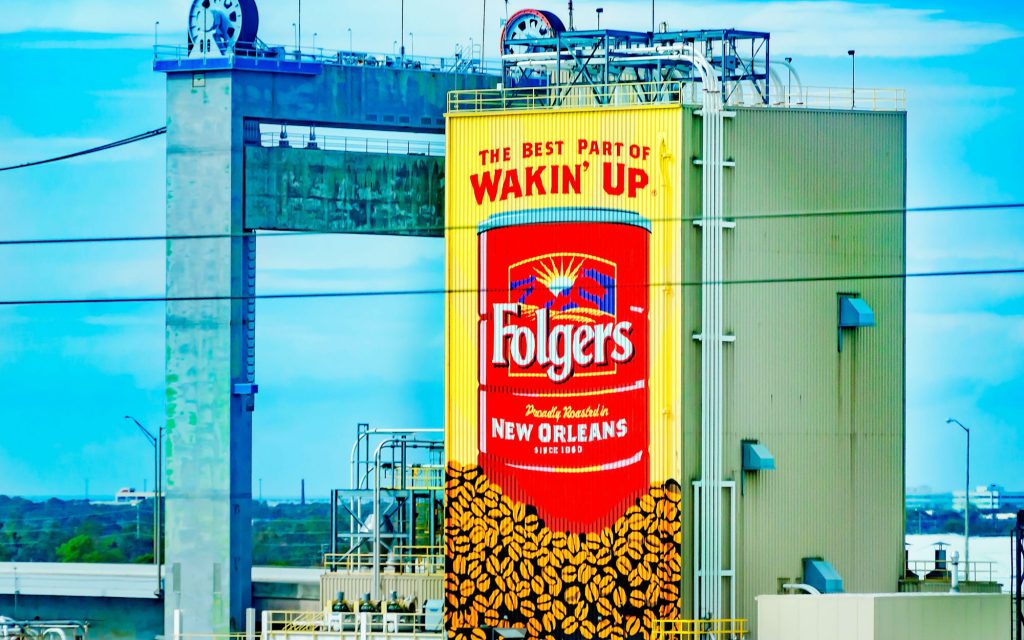Let’s Talk Coffee celebrates its 19th edition

Let’s Talk Coffee 2023 celebrated its 19th edition with a curated program honouring culture, coffee and Copan Ruinas. New ideas and innovation were shared with industry icons, but it was the passion of the host country that stole the show.
When I first heard Let’s Talk Coffee was taking place in Copán Ruinas, I Googled the town. When I first spoke to event Founder David Griswold about attending the 19th edition of the event as a panel moderator, I was captivated by the opportunity. And when I finally told people I was going to Honduras, they asked if it was safe to visit.
But after travelling a good 36 hours from Melbourne to San Pedro Sula and a further five hours via bus into Copán Ruinas – safely escorted with the support of the Honduran government and policy municipality – I can confidently say any doubts or fears quickly eroded. For this event was an impeccably well-orchestrated ensemble from start to finish with plenty of accents, emotions, and movement from the 65 presenters who shared their expertise over 18 sessions and three days of informative panel discussions from 20 to 25 February.
Three-hundred-and-fifty people representing more than 25 countries didn’t come to just “talk coffee”. We discussed it, analysed it, tasted it, and celebrated it with old and new coffee friends. Sustainable Harvest celebrates relationship coffee, and at this event, it was on full display in every sense of the word.
Day one: A feast for the senses
Attending the first day of Let’s Talk Coffee felt like the first day of school. I was ready and eager to listen and absorb all the information that came my way at Marina Copán Convention Center. After an opening address from Sustainable Harvest Founder David Griswold, Chief Coffee Officer Jorge Cuevas and new Managing Director Katherine Nolte on their vision and commitment to transparency and community under the new guidance of Sucafina, it was time to get down to business.
Session after session, I was hooked on content from knowledgeable industry insiders such as Albert Scalla, Senior Futures and Commodity Trader at StoneX, talking about the future of the coffee market.
He addressed the impact of climate change, market volatility, the lack of transparent and reliable supply and demand data, and rising global inflation as a result of the war in Ukraine.
“If the war stops, several commodity prices will be highly volatile, energies will drop suddenly from the desperate need from Russia to generate dollar revenues to rebuild the country,” Salla said. He also noted that Brazil’s 2023-2024 crop cycle will be critical in determining price trends. “We cannot afford to have further weather problems,” Scalla said. “We need to start preparing for the future and considering how to protect ourselves in order to be competitive.”
Andrea and Jon Allen spoke about their Onyx Coffee Lab model and how they used values to create their brand. Rachel Peterson of Hacienda La Esmeralda, Fátima Ismael at UCA Soppexca and Lucy Ward of St Ali Coffee Roasters talked about innovation at farm level and balancing consumer needs. Cosimo Libardo of Nomad Coffee Consulting covered marketing innovation and how to bring a brand to life.
Mario Fernández of the Specialty Coffee Association (SCA) had the crowd hanging on his every word when he discussed the new coffee value assessment system.
“The system we are proposing at SCA is to look at the value of coffee based on all the attributes that make it valuable in one’s own supply chain, such as its taste, size of the bean, the roast, the type of process, variety, farm etc,” Fernández said. “For me as a producer, this new process is important because as a measure, evaluation systems must be complete. What’s in the cup matters. What we expect matters, and what we know maters.”
Let’s Talk Coffee guests participate in a cupping session to test one of the SCA’s new assessment forms.
With guests curious about the changes and its impact on value discovery, a cupping session to follow was an opportunity to test one of the assessment forms in the new system.
In the afternoon it was Martin Löfberg of Swedish roaster Löfbergs who talked about the company’s commitment in the Era of We platform and how climate change is the industry’s biggest long-term challenge in addition to attracting the next generation of consumers.
“What we need, is trust, which is built over time, and the use of traceability for active development and change,” he said.
That night at Sevan’s BBQ grill dinner, guests discussed the day’s events, connected with new faces, and in true tradition, the roasters prepared and served the producers in a role-reversal show of appreciation.
Day two: Perspective
Waking to the sound of flying macaws overhead and the ferrying of tuk-tuks was the perfect way to calm the nerves for the first speaker to present on day two – yours truly. I was honoured to moderate the featured country presentation on Australia, with guest speakers Lucy Ward of St Ali and Debra Knight of Knight Mattingly Coffee Roasters, sharing market insights, challenges, and opportunities in the Australian landscape.
Other engaging talks filtered throughout the day, including the market potential for regenerative organic coffee and ethical coffee consumers, but it was the host country panel on Honduras that left the audience wiser on the realities of the coffee land on which we were visiting.
Napoleon Matuto, Technical Manager at Instituto Hondureño del Café (IHCAFE) spoke about a recent study on coffee producing families in Honduras that found at least 90 per cent of each family had one household member move to the United States in search of more opportunities.
“Young people are leaving the coffee growing regions, which is extremely frustrating,” he said. “The position of Honduran coffee is important and our producers have done impressive work to stand out in the market. Fifty-five countries purchase our coffee. Europe is our most important market, but we have to maintain our place in our own market.”
Katia Duke of Finca San Isidro turned the conversation from challenges to action. What Honduran producers need, she said, was equal footing with commercial partners.
“We need to make sure our strategies are aligned, not just regarding sales but strategies around the problems we are facing, such as financing and education. We need the next generation to be motivated to continue what we’re giving them as an inheritance. We want them to have a piece of the pie. We need to co-create better conditions for women. We don’t want anyone to be left behind,” Duke said.
“Twenty per cent of coffee producers in Honduras are women. Women make up the bulk of the labour but at the same time, our access to land titles and other resources are limited. If we can’t get finance, we can’t improve. We need access to technology, access to credit to improve our quality, and access to information. Honduran coffee is a top-shelf contender with amazing coffee, we just need more support.”
That afternoon, a panel on ‘Living income from the producers’ perspective’ continued to shine a spotlight on the needs of farmers, as did a discussion on biological solutions for the future of coffee agriculture.
Carla Veldhuyzen van Zanten, Senior Advisor Sustainable Livelihoods of Fairtrade International spoke about the price coffee farmers need to be able to make a living income, asking the crowd: “How can we make sure a farmer takes leave? How does a farmer working for 50 years get to retire?
Felix Camposeco of La Asociación de Cooperación al Desarrollo Integral de Huehuetenango (ACODIHUE) in Guatemala amplified the need to have coffee be a more sustainable commodity.
“It is necessary to make a constant analysis of the cost of production (annually) to take into account when proposing a living income. A living income means that families have money to eat, for health, for education and, if possible, for entertainment,” Camposeco says.
“In order for a family to live off coffee, they need to have at least one hectare of coffee production and sell it at a living income. Fifty per cent of women producers have much less than the necessary production area, so we need to have projects to provide food and health support.”
Let’s Talk Coffee was a change to connect all representatives in the coffee value chain.
That evening, with plenty of thoughts to digest, guests gathered in the town square where coffee was once again celebrated as part of the town’s identity. I watched a lady roast coffee over coals while her young child looked on with a huge smile. He’s the next generation we’re talking about.
Day three: NextGen
More than 1200 cups of coffee were served throughout Let’s Talk Coffee. The last day of the event boosted this number to a total 6490 litres when water qualities were compared and the impact on taste profiles assessed.
Great panel discussions highlighted the need to build more data-driven supply chains, and the impact of electric roaster technology, but it was the ‘NextGen of climate pioneers’ that had the crowd in rapturous applause.
Fourteen-year-old Guillermo Lopez from Cafescor was articulate in talking about his family farm’s reforestation program to mitigate climate change. He spoke about implicating a crop certification program focused on food security, managing crops with raw material and organic inputs, and using solar panels to power 50 per cent of the farm’s energy supply.
Pablo Ruiz of the Hanns R. Neumann Foundation spoke about the importance of youth in coffee; and while it’s been known, it’s never been fully understood. He shared a photo of a couple on a farm, and said “what’s missing from the image, is the entire family”.
“We need to transform the reality of coffee farming to the next generation. Eight per cent of coffee producers in Honduras are aged between 18 to 30 years of age,” he said.
“We did a survey of 1000 youth coffee farmers in more than 98 municipalities, and only 32 per cent of young people were found to own their land. Only 12 per cent have access to finance and those that do, have high interest rates. Only 31 per cent receive technical assistance. Most say they are missing financial opportunities, and only 10 per cent belong to coffee farmer organisations. Ninety-five per cent of them said they were feeling the effects of climate change, and more than 51 per cent said they are thinking of migrating from outside their communities. That should give us goose bumps.”
As such, Ruiz said the concept of ‘climate pioneers’ has been an initiative of the past two years where 50 graduates had been invited to be part of the solution. Youth are taught soft skills, and how to follow smart climate practices, develop business models, and how to become leaders.
“We don’t just want to train them to become better coffee growers, but better entrepreneurs. Some of the best-run farms in Honduras are those run by the next generation because they are wanting to try new things in the midst of a traditional culture,” he said.
“The answer to getting the youth involved in all levels of the supply chain, is to work with the private and public entities, sector by sector with a young person’s lens on. Ask yourself: ‘what’s my business doing to support young people?’ I can tell you, it’s worth it.”
The event concluded with the Harvees Awards gala event. Before the crowd danced the night away in traditional Honduran song and dance, Torrey Lee from Cafe Moto and Fatima Ismael from UCA Soppexca were awarded Harvees. David Griswold received special recognition from producer leaders for his commitment to supporting smallholder farmers.
Where diamonds are made
All good things must come to an end, although I was just getting used to Honduran Lempira, and a touch of Spanish. On our final day in Copán Ruinas, guests were invited to visit to the Macaw Mountain Bird Park and Nature Reserve; the Mayan Ruins, one of the most important sites of the Mayan civilisation, or Finca Santa Isabel. When any Aussie has the chance to be at origin, we take it.
After a tour of Juan Welchez’s family farm, I asked third-generation farmer Juan Angel Welchez what it was that makes Honduran coffee so special.
“I believe that Honduras is a rough gem. We have a lot to offer, not only in volume and quantity of coffee, being the six largest producer in the world,” he said. “The world might not know that we have great coffee, but we have great people, great land, and coffee that’s rich in history and social integration. We just need to polish it so that the world knows that we do have great specialty coffee.”
This article was first published in the May/June 2023 edition of Global Coffee Report. Read more HERE.
The post Let’s Talk Coffee celebrates its 19th edition appeared first on Global Coffee Report.




Responses